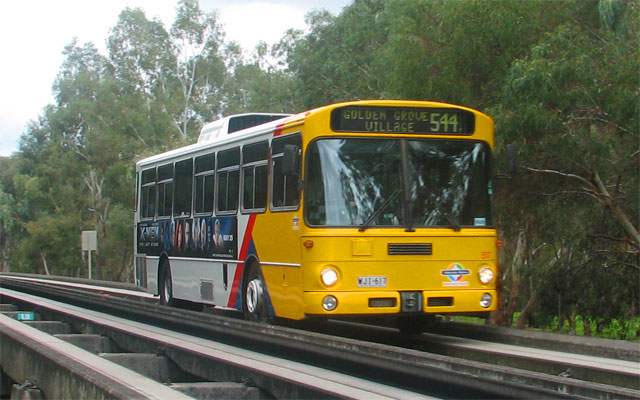What the actual fuck⁈ “Batteries can catch on fire.” Sure, whatever could go wrong with a 1000l tank of FUCKING GASOLINE.
AAAaaaaHHhh I hate people!
Going with the “batteries catch on fire argument” is stupid. “Batteries are heavy and expensive” is probably more compelling. But yeah, wires are better solution for things going in fixed routes.
The ammount of water required to put out a normal car is infinitely less than the amount required to put out a battery fire.
Not to mention the extra weight, nor the retention loss per recharge meaning we need to change batteries every 2-4 years polluting a lot more, we ain’t even talking about the energy loss when doing the conversion to electric and then again to mechanical.
The electric transport is the way to go in the future, but firts it needs to have a solid foundation, and nuclear is the way to go at least in this moment. Otherwise we are only making things worse.
Edit for those wondering about the battery degradation: https://www.geotab.com/blog/ev-battery-health/
we need to change batteries every 2-4 years
Wait, what‽ No. We don’t need to change batteries every 2-4 years. That’s what you do with TV remote controls and temperature sensors, not electric car batteries, LOL!
Electric car batteries are made to last at least 7 years (from a warranty standpoint) but in reality it’s more like 10. Not only that but they’re not single, gigantic objects. They’re made of lots of “cells” so if one of them is going bad you can replace just that one bad cell.
Anecdote: The batteries in my Prius lasted 15 years before I had to replace one of the cells. Then a year later I had to replace another one. A year after that I sold it so I have no idea how the batteries are doing right now but I’m sure another cell would probably need to be replaced by now 19 years in service).
I’d also like to point out that the latest electric car batteries are vastly superior to the ones in my Prius.
Electric car batteries are made to last at least 7 years (from a warranty standpoint) but in reality it’s more like 10. Not only that but they’re not single, gigantic objects. They’re made of lots of “cells” so if one of them is going bad you can replace just that one bad cell.
Sincere question, what happens with the second hand electric vehicle market? New electrics make a ton of sense, but in my mind the ‘used car’ market becomes essentially unobtainable for poor folk. If a 12 year old electric vehicle hits the market, eventually the second or third owner is going to have to replace the batteries and poor people can’t afford the 5000 plus labor to get new cells for it.
This isn’t a situation that affects me, at the moment, but there are millions of people around the globe who buy the $1000 car and drive it until it just doesn’t go anymore. I don’t see that being an option for electrics.
Sincere question, what happens with the second hand electric vehicle market?
Doesn’t and won’t exist. And it might be a “conspiracy theory” but I do think it is totally intentional.
Yeah, what I’ve heard is that water cooling the batteries (like almost every EV does now) massively extends the life. Early Prius batteries had no cooling and the heat degraded them faster. 15 years is a pretty good life still.
On the subject of battery warranty:
The federal government requires manufacturers to offer an eight-year/100,000-mile warranty on all EV batteries. California does one better, mandating a warranty of 10 years or 150,000 miles. Some companies will cover a battery only if it completely stops working, while others will replace the battery if it falls below a certain capacity, usually 70% of the original, while still under warranty.
It’s important to note, a degraded battery, even with 50% of its original capacity is still useful. Someone who doesn’t need the range could drive it, or the battery could be taken apart, and have the cells repurposed or recycled. Lithium and some of the other rare metals used in batteries are quite valuable for recycling, and our abilities to do so are getting better every year.
Sure, that replacement time isn’t 4 but 15-20 years (well, except early Leafs that didn’t have battery temperature management of any kind), but my 20 year old car’s gas tank fits just as much gas as it did 20 years ago.
If you think any ICE car is going to outlast an electric you’re mistaken. EVs have a fraction of the moving parts of an ICE car and as a result are expected to last a lot longer. 30+ years for an electric car isn’t out of the question. Especially the latest ones with their water cooled batteries.
The number of moving parts is just one (albeit a great big) factor as to why EVs are a lot more reliable and will last a lot longer than an ICE car. There’s other elements as well such as the regenerative braking… You basically have an expiration date that tells you when to replace the brake pads instead of a number of miles (or thickness). Because the brake pads themselves will never wear enough from normal driving to warrant replacement. Instead you have to figure out the replacement time based on exposure to natural radiation (LOL) and seasonal hot/cold cycles.
The magnets in the motors lose about 5% of their strength every 100 years. So again, the thing you’re accounting for when figuring out how long the motors will last is the exposure to natural radiation degrading the insulation of the wires (LOL).
I’m aware an ICE car requires more maintenance. But, two things. My gas tank doesn’t get smaller over time and good luck taking your Tesla or Chevy Bolt to an unauthorized repair shop and let them try to fix anything without access to OEM diagnostic tools. Yes, new ICE cars are also full of this bullshit, but hey, my 20 year old ICE car isn’t!
Good luck finding or affording gas in 20 years!
You’ll have to go down to the boat dock to fill up your ICE car because there won’t be gas stations anywhere else.
I didn’t mean it literally, but easily it could be considering how u lose performance if u use a battery powered vehicle in somewhere to hot, or to cold.
Also, look how much degradation suffers the battery’s https://www.geotab.com/blog/ev-battery-health/
According to Geotab a Tesla will be at 90% of it’s initial State of Health (SoH) after 5 years of use while a Leaf (which is well-known for shit thermal management and poor battery quality) will be at 80%. That’s worse than their other charts which show averages of 85% SoH in an equivalent amount of time.
Regardless, even operating at 80% after five years is completely fine. The curve isn’t really linear anyway so after about 10 years the batteries will likely be operating at about 70% of their original SoH in the worst case scenario.
Also consider that the price of lithium ion batteries has dropped consistently year over year for the past decade. There was a bit of a hiccup because of COVID but that’s over now and the price is continuing to drop. That means the cost of a replacement battery pack in 10 years will likely be 60-90% cheaper (if the current trend continues) than it is today.
So? First of all, my platina already has more than 12-13 years and if I lose any performance if I lose any at all, is gonna be maybe, MAYBE %3. And the real matter is all the implications of making those batteries, contamination, and NO FUCKING IMPROVEMENT OVER A NORMAL CAR, in any case it would be worse. What’s the point of making ur car battery dependent when the energy used to charge it comes from burning the same fossil fuel as before, but now losing energy in the conversions from one kind of energy to another.
That’s without even talking about all the draconian software locks, how companies r starting to lock functions wich already come with the vehicle, how they r trying to kill the right to repair, etc, etc, etc. We don’t even know if changing batteries is gonna be allowed or if its gonna be illegal in some way as apple shenanigans already did it in Mexico where its now illegal to even install linux in a computer u already buy it since it would be “alteration without agreement”. Want a real change and really helping the planet? we need better public transport and changing how we produce electric energy as a whole, because right now just putting a battery in a car and calling it a day is just additional problems to the already present ones in traditional cars.
YOu can’t really stop a lithium ion battery fire, all you can do is keep it from catching other things on fire around it, you pretty much just have to let it burn out.
Which means you need to dunk it in a pool. How many of those does your local FD has? 1-5?
Just remember that “good” solutions are still preferred over “bad” solutions, and there are never any “perfect” solutions. I see too many people think electric cars are terrible because of what they’ve been told, like the batteries. For me, it’s like “Yeah, but they’re still better than ICE vehicles”. They’ll get better, they’re definitely not perfect, but they are just better
and nuclear is the way to go at least in this moment.
Nuclear is about to go away, looking at the statitics.
Yeah… not really something I want to see happening.
Ideally solar + nuclear could be the solution we need.
Nuclear is about to go away FUCK FUCK FUCK FUCK German government
Frankly, I don’t mind as long as I can get enough electricity at any time of the day.
So you don’t mind paying 40 cents/kWh?
I’d be paying that anyway for renewable power given the geography of my country, where nuclear is impossible (ABSOLUTELY impossible). If someone could cut the natural gas from our energy pie and give us clean electricity as a replacement we’d be grateful, given our limited space and relative lack of renewable resources.
I thought he wanted nuclear energy in cars?
Small nuclear reactor in your car is stupid, but I would love if every city had its own nuclear reactor. Central power and heating!
I’m aware of the Nucleon, that is why I don’t want this in my car. But, I would love to have a tiny nuclear reactor in my neighborhood substation or something
Why would I want a ducking bomb under me ? No, I want I city with solar+nuclear power energizing public transport and THEN maybe u could use a battery personal vehicle to move like an autonomous trolleybus.
My problem with “electric” cars right now is where the energy comes from.
Yup batteries are not the way. By the time the batteries need to be replaced you might have helped slightly but probably not. Batteries is a illusion to going green right now. Just another product that has a demand and an easy market for it.
What would be a better alternative if you exclude the use of fossil fuels?
fixed overhead wires, as OP suggested?
Gasoline and diesel can be extinguished relatively easily. Extinguishing an EV means throwing it into a tub of water for a day or two
Please don’t put lithium in water; that will make it worse.
Gasoline vehicles also don’t tend to catch fire spontaneously while parked. That risk exists with every unattended lithium-ion battery undergoing recharging. People technically shouldn’t be plugging their phones in at night and then going to sleep, but everyone does it anyway.
You’re aware that diesel is quite hard to catch on fire
No it’s not. It’s harder to catch fire than gasoline.
It still catches fire easily.
Gasoline doesn’t burn that easily, either. Cars with gas tanks don’t burst into flames while sitting powered off in a garage. Even when they get wrecked they don’t usually burst into flames.
On the other hand, gasoline is slowly causing the world to burst into flames…
You can toss a lit match into a puddle of diesel and the match will go out. Diesel burns, but since it doesn’t evaporate as fast as gasoline, you don’t have those flammable gases hanging in the air. A trail of diesel that’s being burned at one end will not spread, unlike gasoline.
Okay
That’s why he said gasoline tho
But that’s not relevant for busses
Meanwhile on the Autobahn:

Is this a trial or is it getting installed all over? It’s the best solution to electrify goods transport by road. Only a small battery required for off grid to delivery point and back
It is a trial atm. On 5 highways in different areas, a few trucks.
More about this from Tom Scott
Steel rails have even less friction
This is a very nitche application. Tom Scott did a video on it.
WTF Germany how did I not know this was a thing and why aren’t we doing it here in the US?
Question though. Obviously the wires can’t cover every road and the truck sometimes has to drive off the wired road. Do they have small batteries to carry them between the wires?
We’ve had these in Boston since I was a kid, but recently they’ve been taking down the wires.
Aren’t those fro the T though? Or did bus routes use them too?
The busses out of Harvard station used them (71, 73, 75? and some others).
Silver line to the airport too, right?
Buses are lame. They combine the cons of public transit with the cons of driving a car in a city. I believe in tram surpremacy.
Buses > trams. Something breaks down in bus lane? Bus go round. Breakdown on tram track? Tram stuck.
Trolleybuses the best compromise. Uses electricity without having downtime to charge and weight of lot of batteries and doesn’t need tracks (but can still have dedicated bus lanes)
The tram supremacy doesn’t lie in the inherent nature of the technology but in the way we treat it! Trams get:
- their own lane
- dedicated signals at intersections (often even priority)
- infrastructure money and thus planning effort
In short, they are (usually) treated like public transport. Busses on the other hand are too often treated like just another car that’s thrown in with the rest but also has the obligations of public transport. If you treated trams like that (sharing the road, waiting behind cars) they would be even worse than busses.
I love trams, light rail, and subway systems. I’ve had to think long and hard about why. Busses have notable advantages for flexibility and redundancy in the system, so why do I prefer to use a railed transit solution?
For light rail, grade separated trams, and subways it’s easy: they’re faster in the city. Like… WAY faster. They don’t fight traffic so I wait a few minutes (at most) in any city with real transit solutions, ride for a short bit, hop off, and I’m there. Not having to deal with my car is freedom.
So… trams… why trams over busses?
First of all they’re bigger. There’s more elbow room and it’s easier to get on and off. It’s easier for a group of people (see: me and the kids) to all climb on and make room. The doors are larger and it’s easier to use multiple doors to load a large group so the people getting on and off a tram can go much faster. There is less shuffling along trying to wedge yourselves into the tram like you’re forced to do on a bus.
Second, they’re predictable and have a visible route. When I’m walking around, I can tell where the tram will be because I can follow the rails. I don’t have to guess what the route will be or where I should go to meet it. Yes, busses have signs every so often, but it’s not nearly the same as seeing the rails and knowing I’m on the route. This is especially true if they do move the bus route (which is what everyone who advocates for busses says is a good thing), and I don’t know it. The bus is just gone.
Thirdly, the tram drives in a predictable path. I can be near it and know where it’s going to go. In fact, whole big crowds of people do it all the time in plazas in Europe. You can walk near the rails and know that you’re still safe. Check out the plaza in front of the main train station in Amsterdam. They chose to run the trams right through it, but not allow busses since they weren’t safe and predictable enough.
Fourth, they’re quiet. Trolley Busses get this too, but trams have had it a long time. They can co-exist with a people-oriented space without being too disruptive. When you sit in a cafe talking with your friends and the tram goes by it’s no big deal. When a diesel bus goes by it’s incredibly noisy.
Lastly, they’re a community commitment. When a city installs a tram, the whole city knows that the route it travels will be supported for a long time. If you choose to live near a stop, you’ll have transit. If you’re choosing to start a business, you’ll want to be close to the tram line so customers can easily get there. The same isn’t nearly as true for a bus line. I haven’t really pinned down why yet, but there’s a very different feel to rolling along on a tram while looking at businesses to visit, and rolling along on a bus. You just don’t have the same kind of connection to the street around you on a bus that you do on a tram.
You. You get it.
I totally agree with passenger space, predictability, speed and overall commitment towards development of the parts of the city that the tram goes through.
However I personally cannot agree on trams being quiet at least in my country. They have an incredibly loud squeal when cornering at higher speeds. Sometimes one can hear a tram squealing by half a kilometer away.
Honestly, for growing places, or places with bad public transit, diesel busses are the way to go. They are the cheapest and require almost no new infrastructure so it can offset car emissions quicker than the other options. Established bus routes that are popular should be converted to tram lines or BRT.
Diesel busses should be considered the last alternative though, out of all the mass transit options they are still the worst for the environment. Not unless a city has exhuasted all other options should they look into them, or truly have no money for alternatives.
Downtown areas can easily be canternaried for electrified busses, and battery busses are great for trips within cities.
If a city is growing then it’s the perfect time to lay down rail and plan it out properly before road infrastructure gets in the way, and rail always pays off in the long run.For longer trips then fine, diesel, but only if 1) It’s out of range for electrified busses and 2) there is not ridership enough for rail. (but even then, look at the UK’s request stop numbers and I’d say that argument is pretty flimsy)
I honestly disagree. If you can get 5 car users on a diesel bus, you are making a positive impact on the environment. And you can deploy way more diesel busses than electric ones. Once you build demand, you can skip busses altogether and replace with trams. The batteries in busses are a cool technology, but still exploit child labor and extended neocolonialism in the same way oil does. Also battery fires are much worse than normal fires.
I think we should electrify fleets as soon as possible but I think adding a few battery busses here and there won’t do anything but pander to environmentalist
But cables ugly/s
And the same people who gripe about overhead cables apparently have no trouble staring at a street full of idling, polluting, and noisy cars. It’s really impressive.
The best thing trolleybuses have going for them is their relatively low dependence on rare earth elements in production in contrast with BEV buses with their large batteries. Trolleybuses environmental toll is way smaller and it makes producers and operators way less dependent on third world countries devastating the environment with slave labor.
There’s also the centralization advantage and long lifespan. Centralized power generation is nearly always most efficient, and EV batteries degrade relatively quickly, while there are real life examples of 30 year old trolleybuses still operating fine.
Those 30 year old trolleybuses die when power dies, but even semi modern ones (aka 15-10 year olds) can still have diesel backup. New ones always have battery backup.
That’s true but still those batteries are significantly smaller than those of BEV buses - usually trolleybuses with batteries have 5-15km of range compared to 200-350 km of equivalent BEV buses which also means that the trolleybuses are significantly lighter than BEV buses, which helps with efficiency of electricity utilisation. Another efficiency factor is that not having to charge and deplete a huge battery will save quite significant ammnount of power that is lost as heat during battery operation.
batteries are significantly smaller than those of BEV buses
And that is an advantage. Lower cost and lower weight.
No argument here. We need more trolleybuses.
Hurr duurr rareearth . Written from your phone with rare earth materials, tomorrow you’re going to drive to work using rare earth to work on your laptop with rare earth materials.
Neither batteries nor drive train components of bevs HAVE to use rare earth. There’s tons of cars without them (bmw electric cars for example).
If you even respond, please include a modern car which does not contain ANY rare earth material and does not use electricity for energy storage.
Nothing is black and white you know. No decision is 100% good or 100% bad, we live in a sepectrum where some decisions may be less bad than others and that is the point.
Also current batteries will use cobalt or lithium, other options are either not efficient enough (like metal hydride or sulphuric acid batteries) or developed enough - solid state batteries, or LiFePo.
Also current BMW BEVs are still using lithium based batteries, whose mining pretty much is environmental disaster as a process.
Meanwhile in Australia:

Bitch I’m a truss
That looks pretty sick ngl
It didn’t suck as a solution when it was implemented. The buses function like small diesel trains; they don’t have to deal with traffic, and can travel faster because they kinda lock in to the rails. It didn’t need as much land as a freeway or cost as much as a dedicated train line because you could just retrofit old buses. Plus the advantage of being able to run a standard bus route at each end of the line, no need for connecting services.
Trams… Where isn’t possible trams use trolleybus… That’s it!!! But what is sad, Eastern Europe falls into buying electric buses because it’s mainstream 😬
“Electric buses aren’t safe because the batteries can catch on fire”
London here running hybrids for over half a decade with no issue.
We USians are so hooked on, and controlled by, car infrastructure that we’ll come up with any lame ass excuse to undermine public transit. “Busses (or trains or any other form of public transit) aren’t perfect because of X, so we should just keep destroying our health, our communities and our planet”
Yeah, who the heck complains about either of those points? Hybrid buses have been a thing for a long time. And even if it was a plain diesel bus, it’d still be better than having dozens of gasoline cars.
We have some electric but lines in San Sebastian (Spain) too, no issues, the buses are lovely, they work fine. It has been about 4 years since they first got introduced, no major issues.
We have these in Vancouver, a lot of them. And a few battery buses as well
here in Santiago we have more than 1000 Electric Buses In operation, they work great.
Trolleys can’t divert trough an alternative route if the original route got blocked somehow (for example it got barricaded.) wich is a common occurrence here in Santiago.
I’m Czech and my city has a trolleybus network. Every single trolleybus has either a) diesel engine or b) battery backup, depends on their age. Hell, there are even entire lines where 1/3rd they run on batteries. But, they can be smaller, so the vehicle is lighter.
that still doesn’t adress the cost of implementing it on the more than 300 bus routes there are in Santiago or how probable is that the infrastructure would get damaged or destroyed every time there are protests.
Fortunately riots aren’t an issue in my city
yeah, but how many routes?
9 trolleybus lines, 3 of which I know have about 1/3rd without trolley wires at the end so buses go on battery/diesel
Santiago has 300 hundred lines of bus. all of them potentially serviceable by EBs.
Even if we electrified the main corridors, we would still need a lot of buses able to run the entire length of the rout independently.
and Santiago being Santiago that kind of infrastructure would be damaged on riots or something.
Okay? Doesn’t mean Trolleybuses aren’t the best compromise. Infrastructure costs money, so lets make the same argument about roads shall we?
trams!!!
Doesn’t work in hilly cities. That’s why San Francisco has trolleybuses too (and the historical cable cars, but those are more for tourists). They do have light rail where it does make sense though.
Lisbon is very hilly and uses trams
I looked it up and it can indeed go up to 13.5% inclination but they can only run powered cars, no attached wagons. That reduces capacity.
I don’t want to shit on trams. I don’t like this bus vs tram bashing in either direction. I’ll happily take either improvement over a sea of cars…
Don’t they use rubber tired trams, aka guided buses?
Nope, they use the old style
Interesting. How steep would be the steepest hill?
This. Trams are so much nicer, carry more people, way less maintenance cost and the tracks look so good if grass grows between it, also I don’t get motion sickness on them. You don’t even need any asphalt for them which is expensive to maintain, looks worse than pretty much anything except maybe a literal pile of garbage and heats up the surrounding area.
Switzerland runs a lot of these buses. Also trams, normal buses , trains. For those people in the U.S., it’s a very effective and efficient system called public transport.
Because diesel catching on fire is totally unheard of.
Because diesel catching on fire is totally unheard of.
On it’s own? Pretty much unheard of. Usually is a leak and something else set it on fire.
Batteries on the other hand plenty of cases where the battery itself was the starting point. Is usually cause by a bad design or external factors? Yes, not saying otherwise.
And tbh Diesel is the worse example you could put as requires either high pressure or a continuous exposure to a flame as you could throw a lit match on it and it wouldn’t set it on fire. Petrol/Gasoline on the other hand…
Both cases are “external factors causing a fire”
Not always, a bad design/construction of a battery I wouldn’t call it external factors. It doesn’t need anything external to set on fire. But I agree that it’s not common.
On the Diesel/petrol case… it would need a leak to begin with and usually it’s not s difficult thing to design a tank/engine without leaks. Let’s be honest a battery is a more complex system to fuck up.
Are there cases of EV batteries catching fire due to internal failings alone?
Yes, there have been recalls as well in some cased.
Here there is info about incidents, althought not only due to internal faillings alone, there are crashes and other stuff as well. The usual issue is that a thermal runaway happens.
https://en.m.wikipedia.org/wiki/Plug-in_electric_vehicle_fire_incidents
Imagine your car catching fire while you are pumping fuel…
I don’t have to imagine, I saw it with my own eyes. Although it was a bike. Some random spark somewhere ignited the fumes, scary shit.
Let’s face it: in most US cities there probably isn’t much aesthetic for the power lines to spoil. Just like in the grey Soviet cities where they come from
Greetings from Winterthur, a pretty nice, human-friendly, town in Switzerland which bunch of old buildings. Also called the bike-city of switzerland. It turns out that the trade off is worth it. I rather have power lines than cars or fuel powered busses.
Those wires are only there if you are looking for them.
This is in my city. It looks this way because it is the biggest public transport intersection, with trolleybuses going all 4 directions meeting a tram line.
Seriously, after a while you just ignore those wires.














